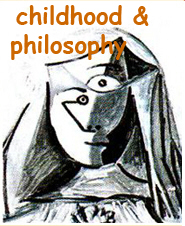rethinking temporality in education drawing upon the philosophies of merleau-ponty and deleuze: a chiasmic be(com)ing
Keywords:
Maurice Merleau-Ponty, Gilles Deleuze, temporality, becoming, being, a chiasmic be(com)ing, ethical educationAbstract
The children of today live in a time when the images of themselves and their childhood, their needs, interests, and skills, are discussed, researched, challenged, and changed. Childhood, education and educational settings for young children are to a great extent governed by temporality. In this paper, temporality and temporal notions in education are explored and discussed. We especially illuminate two different ways of thinking about children in education and care for younger children in the West— the predominant biased notions of the child as becoming or being. The child as becoming, is manifested primarily in classical developmental psychology while the notion of the child as being, has been highlighted mainly by sociological researchers in their critique of developmental psychology. This latter notion is also visible in a totally different manner in the philosophy of Rousseau, emphasizing the free and natural child. In addition, we explore an alternative way of thinking about temporality and children. Drawing upon the philosophy of Maurice Merleau-Ponty and Gilles Deleuze, we argue for a rethinking of temporality beyond linear views on time and biased notions of children as ‘either or’. A movement towardDownloads
Download data is not yet available.
Downloads
Published
2013-01-08
How to Cite
WESTMAN, Susanne; ALERBY, Eva. rethinking temporality in education drawing upon the philosophies of merleau-ponty and deleuze: a chiasmic be(com)ing. childhood & philosophy, Rio de Janeiro, v. 8, n. 16, p. 355–377, 2013. Disponível em: https://www.e-publicacoes.uerj.br/childhood/article/view/20728. Acesso em: 9 may. 2025.
Issue
Section
articles




